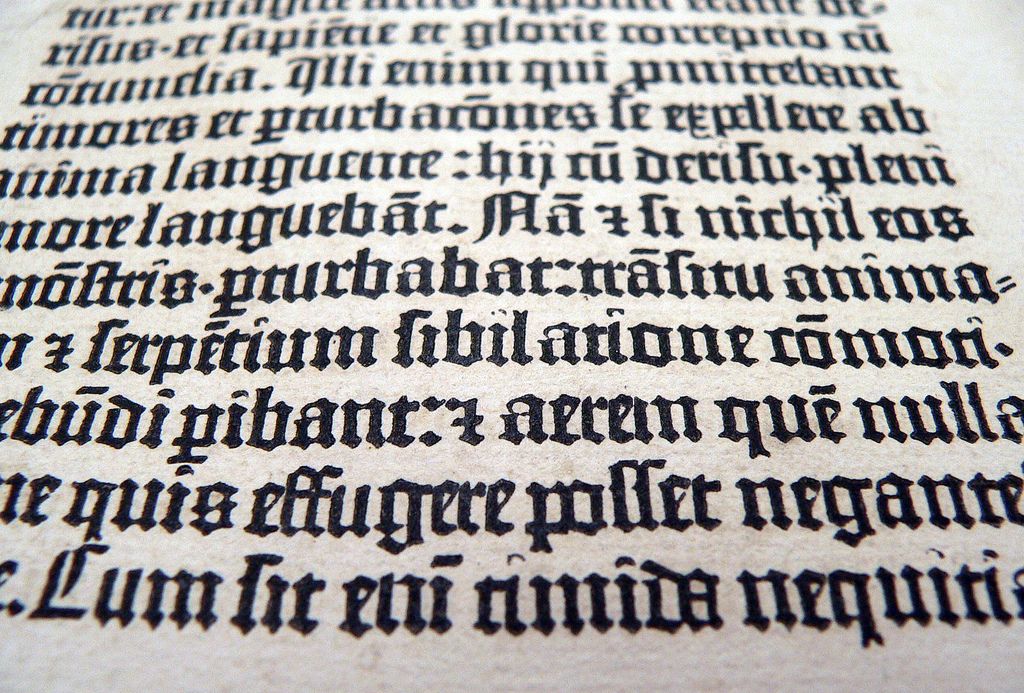You can’t get away from the fact that Christianity has been highly influential to the culture of the West, from morality and science, to architecture and music. Our language, one of the most important aspects of a culture, has also been highly influenced by the Christian faith.
Here are seven examples of English words that don’t have a specifically Christian meaning today but that had Christian origins.
1) “A capella”
“A cappella” is Italian for “in the manner of the chapel,” or “according to the chapel.” Older church music was made to be sung without instrumental accompaniment, and in the 20th century the term came to refer to any singing without accompaniment. (Source)
2) “Noon”
“Noon” comes from the Latin word “nona,” which means “nine.” In Liturgy of the Hours, prayed by priests, religious brothers and sisters, and some lay people, the prayers said at 3pm (or the 9th hour of the day after sun rise at 6am) were called “None.” Over time, those prayer were moved to being said at 12pm, and the name came with them. (Source)
3) “Bigot”
“Bigot” may come from the German “bei Gott” or the English “by God,” and it originally referred to someone who was a religious hypocrite. (Source)
4) “Hocus pocus”
Some believe that “hocus pocus” was a parody of the Latin words of consecration in the Catholic mass “Hoc est corpus meum,” which means “This is my body.” (Source)
5) “Cemetery”
The English word “cemetery” ultimately comes from the Greek word “koimeterion,” which means “sleeping place or dormitory.” Early Christians began using the term to refer to where they buried their dead due to their belief in the future resurrection of the dead. (Source)
6) “Macabre”
Though “macabre” today refers to anything gruesome or dealing with death, it may have its roots in the Latin “machabæorum,” which means “dance of the Maccabees.” This referred to graphic descriptions of the martyrdoms recorded in 1 and 2 Maccabees, which were influential to early Christian views of martyrdom. (Source)
7) “Martyr”
“Martyr” comes from the Greek word which means “witness,” referring to Christians who witnessed to the Gospel by dying for the faith. (Source)

